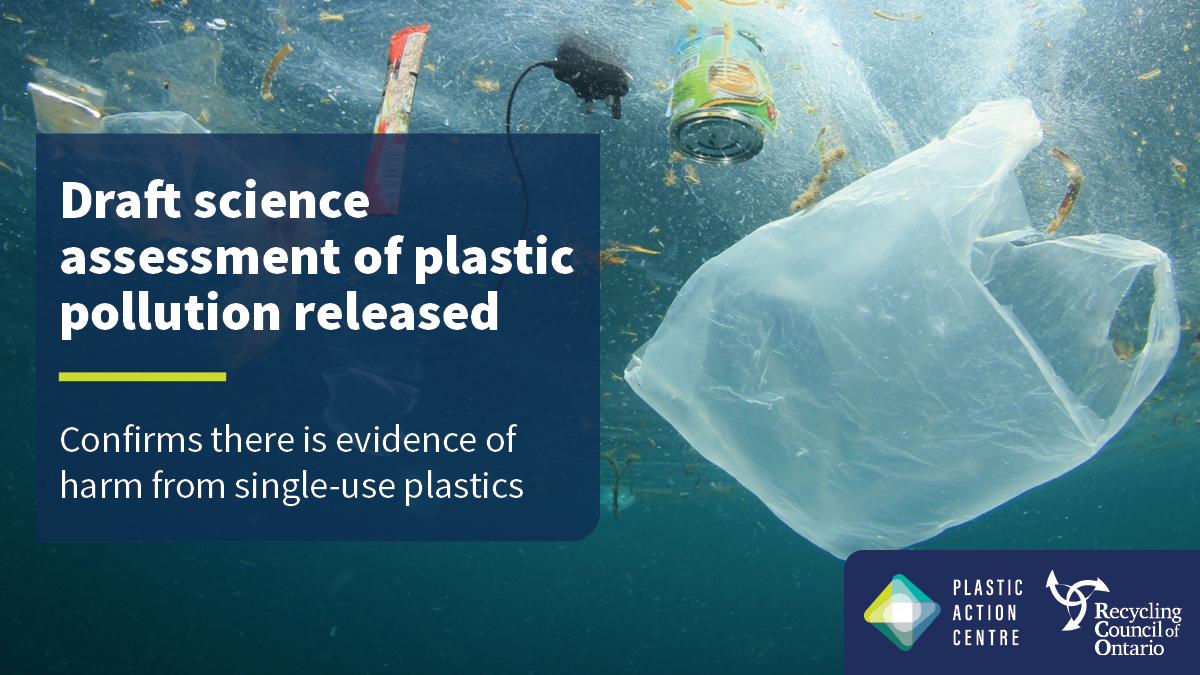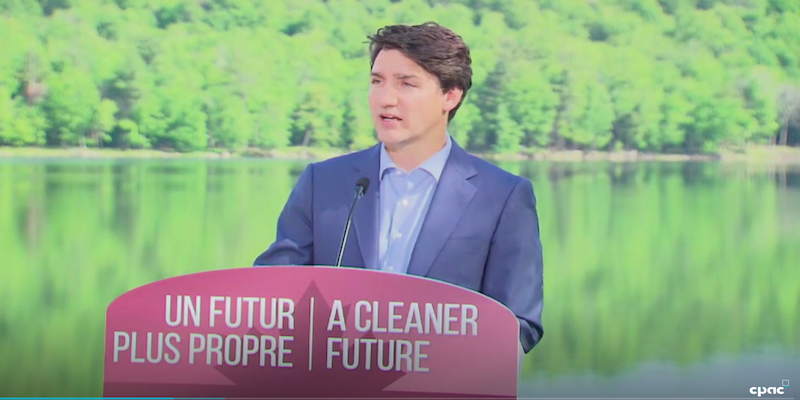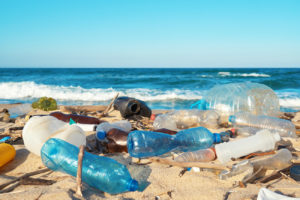Draft Science Assessment of Plastic Pollution Released (Summary)

Report co-authored by Environment and Climate Change Canada and Health Canada confirms there is evidence of harm from single-use plastics.
Banning Harmful Single-Use Plastic
In June 2019 Prime Minister Justin Trudeau announced a comprehensive approach to address plastic pollution in Canada that would:
- ban single-use plastics,
- make companies responsible for plastic waste, and
- invest to expand recycling across the country
Specifically, a plastic ban would apply to single-use products where supported by scientific evidence.
On Thursday, Jan. 30 the Government of Canada released a Draft Science Assessment of Plastic Pollution that supports the need for action to reduce plastics that end up environment.

Assessment Key Findings
- Action is recommended to reduce macro (larger that 5 mm) and microplastics (smaller than 5 mm) that end up in the environment.
- Macroplastics have been shown to cause physical harm to living organisms.
- Information on the impacts of microplastics to human health and the environment is limited.
The impacts of plastics were measured in three areas
- Water (amount of plastics present in surface waters and sediments)
- Soil (expected to be major sinks for microplastics)
- Air (currents and wind transports microplastic particle)
Recommended further research
- Develop standardized methods to sample, quantify, characterize, and evaluate effects of macro- and micro-plastics
- Understand exposure and effects of microplastics on humans, as well as ecotoxicological (environmental) effects
- Consistent monitoring is needed to quantify the full affects of plastics pollution

Next Steps
The science assessment of plastic pollution is intended to inform the Government of Canada’s actions and policies as it follows through on its commitment to ban harmful single-use plastics by 2021.
The Draft Science Assessment of Plastic Pollution will be published on January 31, 2020, in Part I of the Canada Gazette for a 60-day public comment period. Public comments will inform the final science assessment.

Recycling Council of Ontario Comment
The findings from the comprehensive science assessment confirms that we have a plastic waste problem and solidifies the need for action. They underpin the urgency and given the enormity of the task, and it is clear it will take the collective efforts of governments, businesses, and consumers. This assessment report will help us to focus on solutions.
RCO, along with its sister organizations, has asked for action in the following main areas:
- Focus on the source;
- Create sustained markets that demand post-consumer plastics;
- Integrate circularity into government procurement;
- Grow domestic recycling solutions; and
- Develop federal standards.



